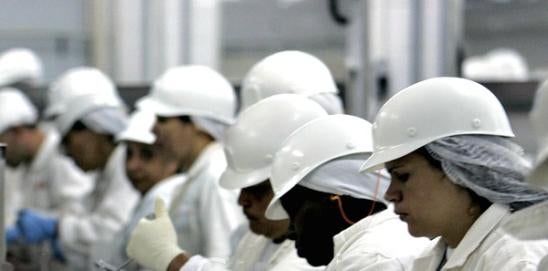In the midst of the pandemic, meat processing facilities have struggled to meet demand while protecting employees. Governmental regulations, orders and guidelines often have seemed to be inconsistent with one another. Even protections offered by the government are not guaranteed. The uncertainty of the situation for meat processing companies makes it difficult to evaluate the competing liabilities.
Shortly after the declaration of the pandemic in early March of 2020, state and local governments began ordering varying degrees of closures for non-essential businesses and industries, excluding the meat packing industry. On April 26, 2020, the CDC and OSHA issued a Joint Meat Processing Guidance for the industry outlining various ways in which to keep employees safe. The Guidance has since been updated. The Guidance recommends various engineering controls to encourage social distancing (including, having employees work six feet apart when possible, modifying the alignment of workstations, extra hand washing stations, and modifications to areas workers frequent) along with administrative controls (including, single-file movement, designating monitors for social distancing, and staggering arrival, break and departure times).
Two days later, President Trump issued an Executive Order under the Defense Production Act to ensure meat processing plants stayed open during the pandemic. The Order provided that the “Secretary of Agriculture shall take all appropriate action under that section to ensure that meat and poultry processors continue operations consistent with the guidance for their operations jointly issued by the CDC and OSHA”. Immediately thereafter, the CDC and OSHA issued a joint statement clarifying the previous Guidance in light of the Executive Order. The statement provided that state and local authorities could not direct meat processing facilities to close “or operate with procedures other than those provided for in [the] Guidance.” Further, the Statement noted that if a meat processing facility is operating pursuant to the Executive Order and is showing good faith to comply with the Joint Meat Processing Guidance and is sued for alleged workplace exposures, “the Department of Labor will consider a request to participate in that litigation in support of the employer’s compliance program.” The Department of Labor will consider similar requests by employees if the facilities have not complied with the program.
Thus, although considered an essential business, meat packing facilities waited over six weeks before being given guidance on how to operate so as to protect workers from COVID. And although the Executive Order reinforces the use of the Guidance, it offers no guarantees that facilities will be protected from liability for lawsuits by employees who claim to have been exposed to COVID in the workplace. The Order simply provides that if a facility complies with the Guidance, the Department will considerintervening in the suit to support the facility’s compliance program. And with or without the Department’s support, compliance with the Guidance is not a guaranty that a facility will prevail in a suit brought by an employee. On the flip side, should the Department determine that the facility did not comply with the Guidance it may intervene in the suit to support the employee.
In addition to civil suits, meat processing facilities also need to be cognizant of regulatory enforcement actions. Before the issuance of the CDC and OSHA Guidance in April, Smithfield Packaged Meats, Corp. implemented its own safety procedures to protect its workers while continuing to process meat. However, despite these efforts the facility shut down on April 9th due to employees testing positive. In the spring of 2020, at least 1,294 Smithfield workers had contracted the virus and four had died from it.
On, September 10, 2020, OSHA issued its first citation to a meat processing facility for failing to protect its workers from the coronavirus. It cited Smithfield for not providing “a workplace free from recognized hazards that can cause death or serious harm.” OSHA has proposed a penalty of $13,494. The very next day, OSHA issued a comparable citation to JBS USA – which operates as Swift Beef Company – for similar reasons.
While OSHA’s actions against Smithfield and JBS create cause for concern, compliance with the Guidance issued by the CDC and OSHA is still the best bet for protecting a meat processing facility from civil or regulatory liability. The adequacy of procedures undertaken prior to the issuance of the Guidance will be scrutinized from a hindsight lens, as it was for Smithfield and JBS. But, even after the issuance of the Guidance, there is no guaranty the Department will intervene in a civil suit by an employee. What is reasonable to expect is that civil and regulatory liability may well attach when the Guidance is not followed.




 i
i

